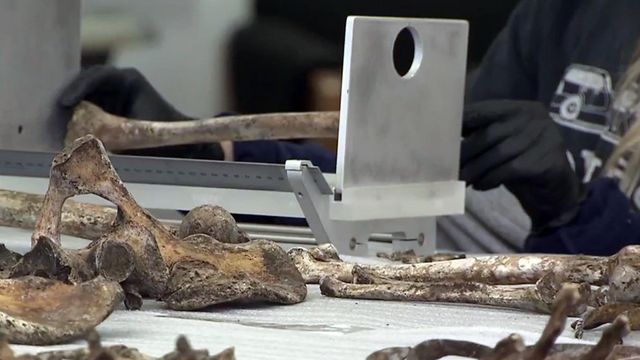Dozens of remains in NC still unidentified. Here's how you can help experts determine who they were
A program designed to identify human remains found in North Carolina is in limbo after exhausting a startup grant, so the scientists involved are turning to the public to help them bring closure to families of missing people.
Posted — Updated"We have a huge crisis here in the United States of unidentified and missing, anywhere in the range of 40,000 individuals," said Ann Ross, a forensic anthropologist who heads the Human Identification and Forensic Analysis Laboratory at North Carolina State University.
North Carolina alone has 128 sets of unidentified human remains in storage, waiting for Ross and other scientists to put a name to each.
"We’re going to try to work through them one at a time," Ross said.
She got a grant two years ago from the University of North Carolina system for that effort and teamed up with Leslie Kauffman, a forensic genealogist, to begin identifying 13 sets of remains. They pulled DNA samples from each and tried to build a genetic profile that might lead to a familial match.
"These people cannot grieve. They’re in limbo," Kauffman said, adding that it "feels wonderful" to solve cases and help the families.
"I think it actually gives them some solace because you finally know what happened and where they are," Ross agreed.
"One of the things I like to say is it takes a village to do this," Kauffman said.
Related Topics
• Credits
Copyright 2024 by Capitol Broadcasting Company. All rights reserved. This material may not be published, broadcast, rewritten or redistributed.






